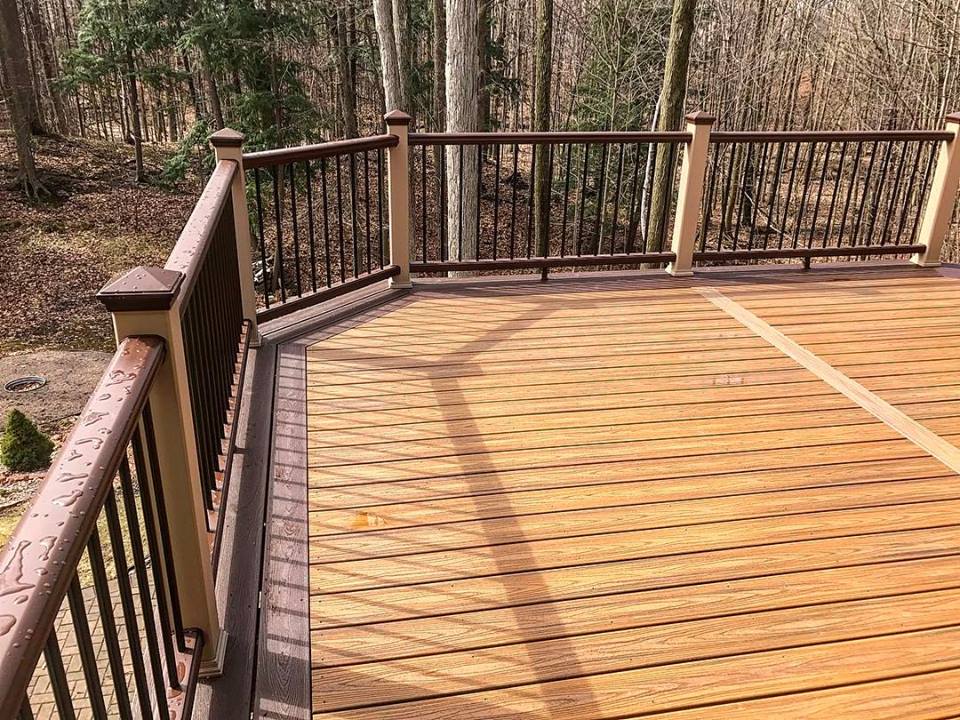


What is the other 5% and why do they list all of the sources for the wood fiber dust and list nothing for the polyethylene! I looked up their MSDS (Material Safety Data Sheet) for the content and they list Wood Fiber at 50-60%, Polyethylene (HDPE) at 40-50% and Carbon Black atĮlsewhere they say that there is 95% recycled material. Trex may be one of the better manufacturers of this product but again there is green-washing in their marketing. This company is shipping virgin bamboo across an ocean and combining it with our waste, where it will eventually end up in our landfills forever. Again the essence of the environmental aspects of this product is lost. Their website discusses in length the environmental (and design) attributes of bamboo. It is made from 60% renewable bamboo fibers and 40% recycled HDPE plastics making it 3X's as strong as composite decking. The manufacturer advertises their product as the ultimate in composite decking. After some discussion I was told that it would need to be sent to a specialty recycler, and if I couldn't find one in my area they would arrange it to be shipped by Fed-Ex to Illinois.Īnother product new to the market is bamboo composite decking. The technical person was dumbfounded that someone was actually calling on this, and said that they haven't recycled any of this.
I called the number listed for "how to" recycle the product ( here). This means they are manufacturing with: 50% virgin plastic, 40% manufacturing scraps, and 10% waste product. With more reading I found that only 50% of the plastic they use is recycled and of the recycled content only 10% is post-consumer. This seemed a brilliant development as the criticism of composite wood is that it is a "monstrous hybrid." That is, a mixture of materials that can never be separated, and once finished with its useful life, will go into the landfill where it will last forever. Recycled content and recyclabilityĪnother "plastic lumber" product was advertised as recyclable. So if you choose to go with a composite wood product, check with the manufacturer for the ingredients in their product and how they have achieved colors that do not fade over time.įor example, I found a product ( here) which is less self-conscious of its non-environmental aspects, and openly advertises that their "PVC engineering guarantees the ultimate in scratch, mildew and stain resistance, with a 25-Year Fade and Stain Warranty." Their decking and railing is also advertised as having only 51% recycled content. This quote brings us back to my previous concern that PVC is now becoming part of manufacturer's formulations. The NAHB report also states that that "recycled wood/plastic composite lumber typically consists of a 50/50 mix of wood fibers from recovered sawdust and waste plastics that include high-density polyethylene (HDPE), PVC and others." In contrast, wood for exterior use is often treated with toxic chemicals when it is installed in high moistures or contacts the ground to prevent decay. Composite wood is not subject to decay, splintering and warping. its efficient use of materials and non-toxicity. Overtime composite wood has developed into a huge industry with a variety of new products that profess to look like natural wood - that never fade and require no upkeep, and on top of that, are environmental saviors.Ī National Association of Home Builder's (NAHB) research report ( here) speaks of the benefits of composite lumber: They initially offered a very basic product in a few colors that were easily achieved. Composite DeckingĬomposite decking was first introduced in the 90s by Trex who developed the initial idea of a composite made from 95% recycled sawdust waste and used plastic bottles (HDPE) where the wood fibers act as reinforcement for the recycled plastic. Mymain observation is that composites have strayed from using recycled content, their original green attribute. In updating my analysis to answer your question I did some research on what developments have been made with composite decking. 
Please take a look at that Q&A ( here) to see where we were on this question two years ago.
Trex wood product install#
I wrote a response to a similar questionin 2011 regarding the comparison between Trex composite decking and wood and heard back from the homeowner that she decided to install a wood deck.







 0 kommentar(er)
0 kommentar(er)
